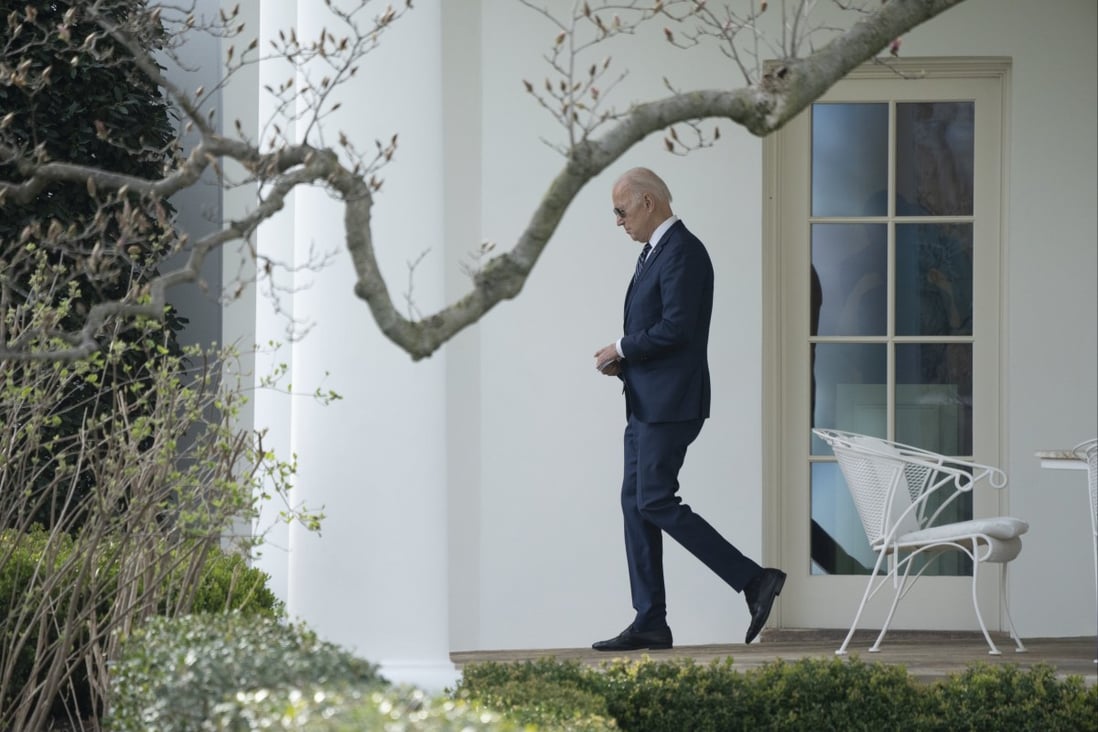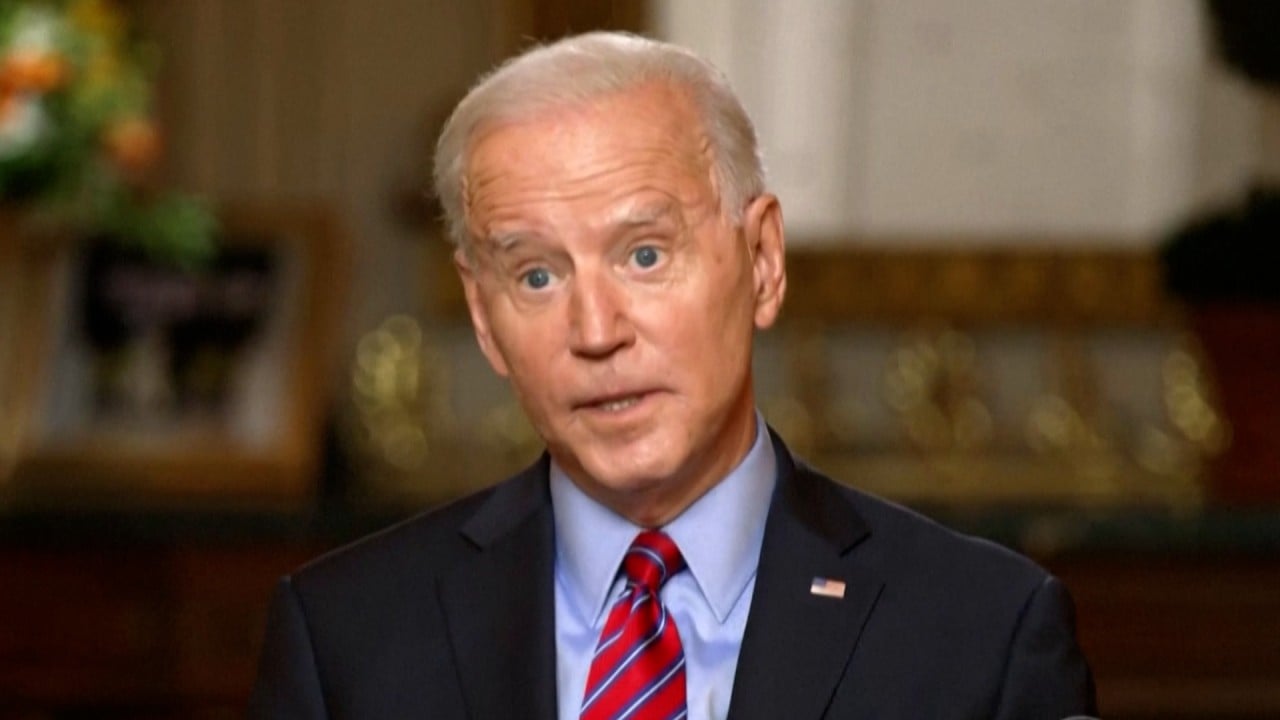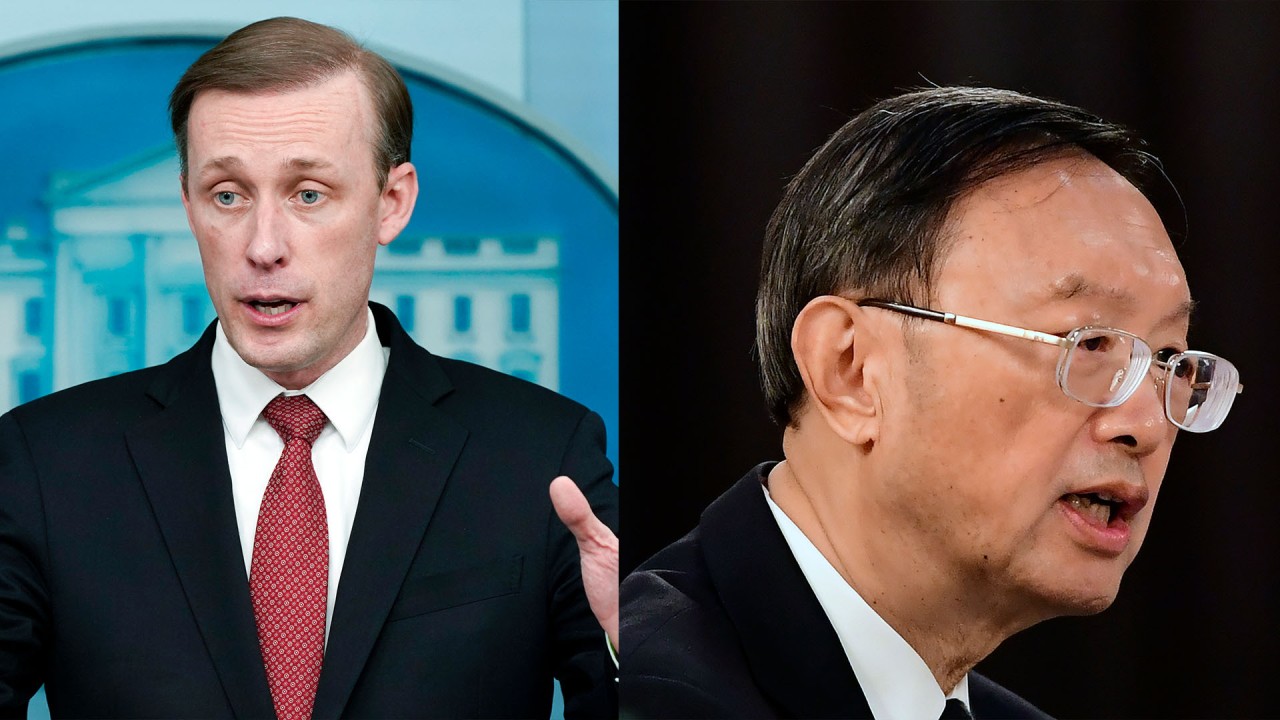US watchers in Beijing urge closer look at Biden’s tough new ‘China hands’
- Washington’s strategic shift to ‘target China’ almost in place, US affairs experts tell official think tank seminar
- With Biden forecasting ‘extreme competition’, scholars urge understanding of new faces formulating China policy in Washington

President Joe Biden may have all pieces in place to “target” Beijing, Chinese experts on US affairs have warned, urging renewed understanding of a new crop of young, professional and “tough” White House “China hands”.
Biden, who took office in January 2021, made it clear from the start that the “China threat” was a strategic policy priority, in a revival of the “pivot to Asia” under the Obama administration where he was vice-president.
And while Washington could still be in the transition period for this strategic policy shift, the key institutional adjustments needed were nearing completion, warned Fan Jishe, a professor at the Central Party School, the Chinese Communist Party’s top cadre-training and policy advice academy.
The Biden administration’s new strategy to target China mainly focused on four areas, Fan said – building domestic consensus; stepping up diplomatic, military, economic alliances; institutionalising new policy directions; and fostering new talent.
“Washington has basically completed forming consensus on what people think about China across political parties, think tanks, within the government and the public,” Fan told a seminar organised by the American Institute at the Chinese Academy of Social Sciences, an official think tank.
“The only group that is still not entirely aligned are the business interest groups … but they are now largely a silent group.”
However, while Biden has said he expects “extreme competition” with the US’ main geopolitical and military rival, his latest Indo-Pacific strategy released last month has been criticised as lacking clarity on China-specific objectives and the means to pursue them.

01:08
US President Joe Biden foresees ‘extreme competition’ with China
US President Joe Biden foresees ‘extreme competition’ with China
Chinese academics like Fan, an expert in US-China relations who works at the party school’s Institute for International Strategic Studies, have been closely observing policy changes under Biden and formulating suggestions for Beijing in the expected long-term strategic competition.
In terms of stepping up diplomatic, military and economic resources, Fan said Washington had begun the process under then president Barack Obama’s 2012 “pivot to Asia” policy.
He also noted that since the Obama administration, there has been an ongoing process of restructuring to focus on China: including adding new roles in the National Security Council for China, Taiwan and Mongolia Affairs, and the establishment of the US Indo-Pacific Command in 2018.
On Washington grooming new talent, Fan said it was time to understand who the new faces formulating China policy in Washington were, as the influence of those whom Beijing was familiar with had largely waned.
“The older generation are witnesses to China’s change, from a closed to an open country. They understand the complexity of China and are confident that the US is a strong superpower that has lasted over a hundred years,” Fan told Tuesday’s seminar.
He reminded the audience of former US treasury secretary Hank Paulson and secretary of state Henry Kissinger, both of whom were highly regarded by both sides as key figures in normalising bilateral relations.
“[Those from] the new generation have only grown to observe China in the last two decades. They see America as a declining power and China as a rising one. They see more keen competition between the two countries, and have a stronger urge to resolve problems,” Fan said. “They are more tough [on China] but their confidence is dropping.”
Apart from identifying US national security adviser Jake Sullivan as the “main operator” of Biden’s China policy and Kurt Campbell, the US coordinator for Indo-Pacific affairs, as a “key ideological thinker” for Washington, Fan analysed the traits of some others who he believes are key figures on China.
The list included Daniel Kritenbrink, Kin Moy, Jung Pak and Rick Waters at the US State Department’s Bureau of East Asian and Pacific Affairs, and “China hands” in the Defence Department such as Colin Kahl, Ely Ratner and Michael Chase.
“If we look at the composition of Biden’s team [on China], we can conclude that they are very professional. Many have published books and thoughts [on China], they are also very familiar with the bureaucracy and the political process, which is particularly important in pushing policies forward [in American politics]” Fan said.
Fan said another characteristic of the team was their first-hand understanding of China.
“Many have come for visits and study … and many were part of Obama’s team and were involved in the formulation of his China policies.”

02:24
US-China meeting focuses on Ukraine, Beijing’s alleged support of Russia
US-China meeting focuses on Ukraine, Beijing’s alleged support of Russia
Fan added that the team was also relatively young, many of them born in the 1960s-80s.
“Most importantly, this team … is familiar [with each other]. They have worked with Biden at different times during his political career, especially when he was vice-president … this means their coordination is pretty good.”
Zhang Wenzhong, a researcher at the China Institutes of Contemporary International Relations (CICIR), noted that China had also tried to grow its research on the US.
“China faces a bigger problem than the US in grooming talent,” Zhang told the seminar, without elaborating.
“We also need to step up our research on the US, and also ‘third party’ countries that could have a key impact on our relations with the US,” he said, adding references to Southeast Asian countries and the European Union.
Beijing’s largely opaque decision-making system means that it could be hard even for academics in policy advisory roles to make an impact. But bridging the knowledge gap with the United States has long been a source of frustration for Chinese academia.
In a speech last year, Wang Jisi, president of Peking University’s Institute of International and Strategic Studies, whose research focuses on the grooming of talent in China’s foreign service and academia, called American studies in China “too weak” compared to Chinese studies in the US.
Fan said he was yet to conclude overall that the US had completed a new stage of strategic shift to target China. However, Da Wei, the director of Tsinghua University’s Centre for International Security and Strategy, said he believed the shift was complete, and that even a “strategic surprise” such as Russia’s invasion of Ukraine on February 24 would not be able to change the American stance on China.
“Therefore, it is very difficult to expect big changes [in China-US relations]. The strategic surprise may shift the focus away for a few months but, even in a year’s time, it will not change [US China policy] … there is not much space that we can work on,” Da told the seminar.
Zhang, from the CICIR, highlighted policy blind spots that might be caused by a singular focus on China. Despite Biden having a very China-focused team in government, they risked overlooking other problems, he said.
“There are many questions, was the US expecting this [Russia’s invasion] to happen or was it really a surprise? Did they overlook Russia? Was the team doing that well?” Zhang said. “I think it was a mistake by the Biden government.”
